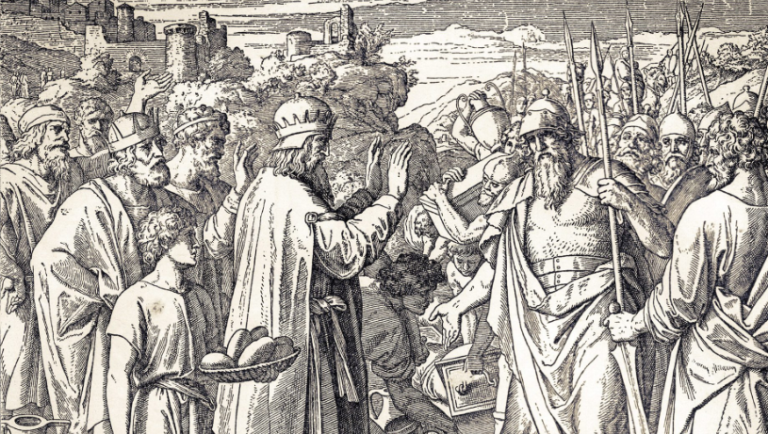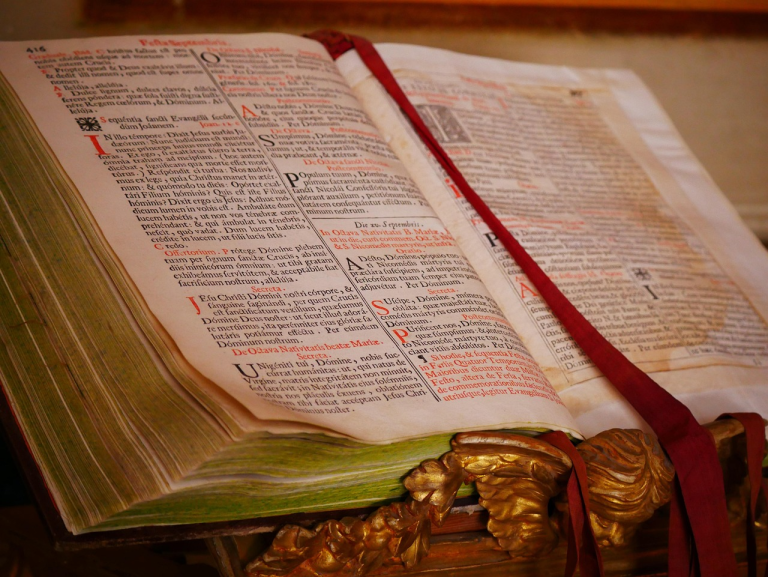Understanding the Origins of Church Hurt

My husband has been called to pastor two hurting churches, and both times, when our family arrived, we were met with believers who were in a state of confusion, anger, and sadness. The situations in each congregation were intricate, involving a series of challenging events that often remained unresolved. These congregation – wide issues compounded the personal struggles and past traumas of individual members, meaning that each person was bearing a unique set of hurts.
Troubles within the church are among the most painful experiences a believer can endure. The complex nature of these situations makes them difficult to navigate, as neglect, miscommunication, disappointment, conflict, and mistreatment often intertwine, leaving believers feeling lost and overwhelmed.
In such circumstances, examining and comprehending the causes of the hurt can assist us in grieving in a healthy way, taking appropriate action, and moving forward. In the Bible, we can identify at least four sources of church hurt. An instance of hurt may stem from just one of these causes, but more likely, it results from a combination of several. Let’s consider how each one impacts us.
1. The Fallen World We Inhabit
When sin entered the world, its effects were far – reaching. Humankind fell under its curse, and the rest of creation was also affected. Paul explains that creation is “in bondage to corruption” and “the whole creation has been groaning together” (Rom. 8:21, 22). You might experience a flooded basement, a neighbor’s dog growling at you during your morning run, or a poison – ivy rash on your legs. In the world God created, things are not as they should be.
The same holds true for the church. If you find it difficult to attend church because of infertility or unwanted singleness, this is a consequence of Adam’s fall. When a struggling regional economy forces your church plant to close, the root cause can be traced back to the events in Genesis 2. Some of the challenges within the church are not the result of a particular sin but rather the presence of sin in the world.
When we endure these types of hurts, we can turn to the Lord in lament. Even though these hardships are not caused by malicious actions, they still cause pain. We can cry out to God, as the psalmist did: “O LORD, all my longing is before you; my sighing is not hidden from you” (Ps. 38:9). We can let our sadness remind us of the better country where “we shall obtain gladness and joy, and sorrow and sighing shall flee away” (Isa. 35:10).
2. Satan’s Hostility Towards the Church
Without spiritual discernment, we may fail to recognize the second cause of church hurt. Some of the painful experiences in the church stem from an epic battle taking place in the spiritual realm, which is invisible to our physical eyes.
In the book of Revelation, John has a vision of a great red dragon that tries to undermine God’s plan of redemption. When its attack on the male child born of the woman fails, it turns its aggression elsewhere: “Then the dragon became furious with the woman and went off to make war on the rest of her offspring, on those who keep the commandments of God and hold to the testimony of Jesus” (v. 17).
This dragon is “that ancient serpent, who is called the devil and Satan, the deceiver of the whole world” (v. 9). Satan is like a “roaring lion” seeking to destroy the church (1 Pet. 5:8). He spreads lies (John 8:44), distorts our doctrine (2 Cor. 11:3), prevents us from understanding the preached Word (Matt. 13:19), manipulates our anger for his own purposes (Eph. 4:26–27), stirs up controversy in the church (2 Tim. 2:23–26), hinders gospel workers from doing their ministry (1 Thess. 2:17–18), exaggerates offenses to make us sin (2 Cor. 2:10–11), traps vulnerable Christians (1 Tim. 5:11–15), tries to destroy new believers (3:6), and encourages church members to neglect one another (1 John 3:10).
When we face these difficulties, we mustn’t be naive about their origin. Often, the pain we feel in the church is like a battle wound inflicted by Satan. In response, we need to fight back. Along with putting on the helmet of salvation and wielding the sword of the Spirit, we engage in prayer, asking God to give his church boldness and victory over the Evil One (Eph. 6:16–20). We also seek the Spirit’s help to stay vigilant, “watchful” (1 Pet. 5:8) and “alert” (Eph. 6:18), so we don’t fall into Satan’s traps.
3. Human Weakness
Paul wrote, “We urge you, brothers, admonish the idle, encourage the fainthearted, help the weak, be patient with them all” (1 Thess. 5:14). Not every problem caused by a church member is due to deliberate sin. Sometimes, people are simply weak.
An immature believer might want to comfort you but ends up making things worse because of their confused theology. Your pastor may wish to minister to you but lacks the full understanding of what you’re going through. A church member may want to be your friend, but chronic illness and young children prevent them from following through. We all have limitations, whether it’s our slow progress in holiness, lack of knowledge, or frail bodies. These human limitations can lead to hurt in the church when we feel neglected or misunderstood by people who genuinely can’t do better.
Even Christ experienced neglect from weak believers in his moment of greatest need. In Gethsemane, when he asked his disciples to pray with him, they fell asleep – not just once, but three times. In response, our Savior showed compassion, saying, “The spirit indeed is willing, but the flesh is weak” (Matt. 26:41). Even when we’re hurt, we can choose to think the best of others (1 Cor. 13:7) and ask the Lord for help to “be patient with them all” (1 Thess. 5:14).
4. Human Sin
The fourth and most obvious cause of hurt in the church is human sin. James asks the first – century congregations, “What causes quarrels and what causes fights among you? Is it not this, that your passions are at war within you?” (James 4:1). Although Christ has freed us from the penalty and power of sin, we still struggle with the sin that remains within us, even within the church.
Conflict, slander, unkindness, partiality, and abuse in the church all stem from the sin in people’s hearts. In these situations, believers can find comfort in knowing that the Lord doesn’t overlook hurt. God deals with every sin, either by placing it on Christ at the cross or by making the sinner pay for it in eternity. God “forgiv[es] iniquity and transgression and sin, but… will by no means clear the guilty” (Ex. 34:7).
When others sin against us, we can cry out to God, asking him to act justly. We can strive for peace and reconciliation as much as it depends on us (Rom. 12:18; see Matt. 18:15–20), knowing that we, too, are sinners in need of mercy. When appropriate, we can seek justice by appealing to church authorities and civil magistrates, who act as instruments of God’s justice.
We may be hurt, but we’re not without hope. Through every difficult situation, we look forward in faith to Christ completing his work in the church so that “he might present the church to himself in splendor, without spot or wrinkle or any such thing, that she might be holy and without blemish” (Eph. 5:27). We can be certain that he will fulfill this promise.





